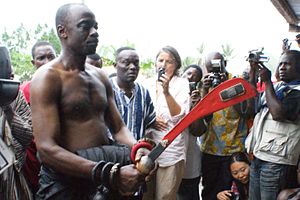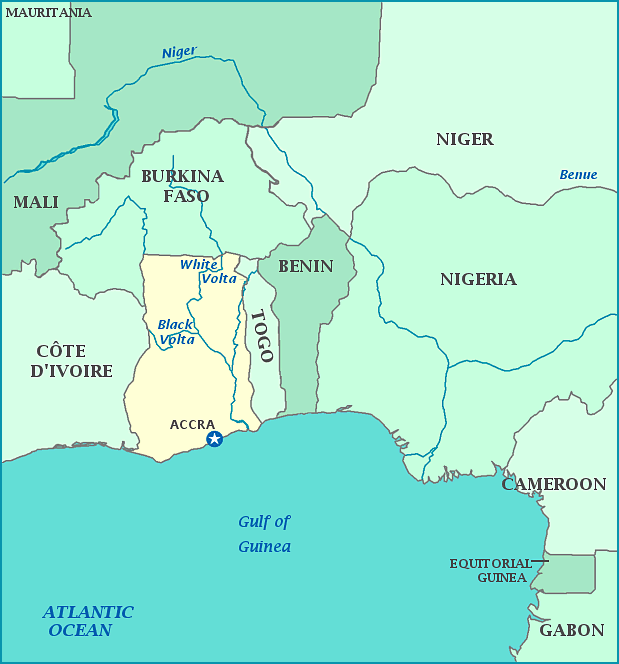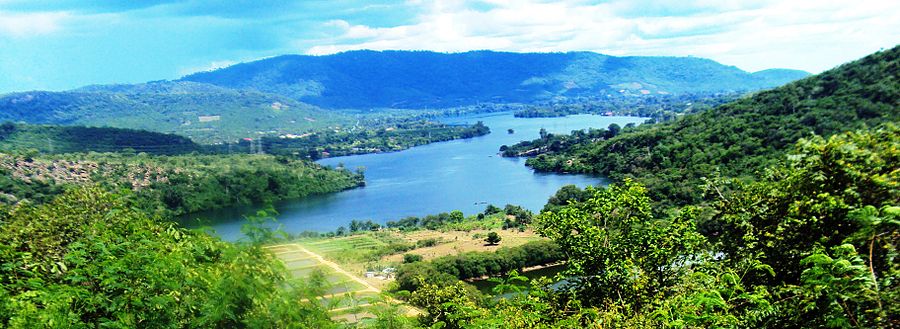It took me a lot of time to figure out how to start
this post on Ghana. I had only a vague knowledge on the country – somewhere in
Western Africa… remnants of stories about someone knowing someone who visited
or lived there… Why is this so vague in my mind? Why don’t I know more about
this country than I should? Why am I drawing such a blank? And when I read up
on the country, it was like I never knew the country before. It was an
epiphany, you might say.
The word Ghana is derived from a title that was
given to kings of the Ghana Empire, meaning “Warrior King.” (Even though this empire was actually
located north of what is now Ghana.) The country of Guinea also derived its
name from the same source. (I’ll get to Guinea in a couple of months.)
Ghana is located in West Africa, surrounded by Côte
d’Ivoire to the west, Burkina Faso to the north, Togo to the east, and the Gulf
of Guinea to the south. Ghana lies
only a few degrees north of the equator, and the Prime Meridian runs through
the city of Tema, an important port city.
In fact, the country is only about 382 miles from the 0º, 0º center
coordinates, which is actually out in the Gulf. Ghana’s landscape varies
between grasslands, low hills, waterfalls, rivers, and islands. Their tropical climate
is generally divided into two seasons: dry and rainy.
 |
| Denkyira sword demonstration |
Five kingdoms (Ashanti, Akwamu, Bonoman, Denkyira,
and Mankessim) were collectively known as the Akan Kingdom, and they were among
the original peoples to inhabit what is now known as Ghana. In the 15th
century, the Portuguese were the first Europeans to arrive and renamed the area
Portuguese Gold Coast because of the amount of gold that was there. By the end
of the 1500s, the Dutch arrived and settled their own aptly-named Dutch Gold
Coast. The Swedish and Danish followed and guess what they called their fortresses?
Go on, guess. Yep, Swedish Gold Coast and Danish Gold Coast. (See a pattern?
Not very original here.) In the 1600s, the Germans, not wanting to be left out,
set up the –you guessed it– German Gold Coast (sometimes referred to as the Brandenburger
Gold Coast). The British arrived, because why not at this point? They
established control over parts of these areas during the late 1800s and named it
something completely different. Just kidding: they called it British Gold
Coast. The Akan peoples fought against the British for many years, and the
British people finally granted the Ghanaians their independence in 1957. Their
first president, Kwame Nkrumah, expanded pan-Africanism and incorporated the
teachings and lessons of Dr. Martin Luther King, Jr., Marcus Garvey, and W.E.B.
du Bois into their policies. There have been some shaky times in Ghana’s
political history, but it’s been fairly stable in recent years.
Accra, whose name is derived from the word for
“ants,” is Ghana’s largest city and center of government. Located on the Gulf
of Guinea, Accra is the 13th largest metropolitan area in
Africa. Accra was once the capital
of the British Gold Coast, and after they gained independence, the capital remained
where it was. Modern skyscrapers intermingle with classical European
architecture; the city enjoys many modern amenities, such as shopping malls, universities,
theatres, sports arenas, museums, libraries and is a center of many local and
federal government offices, international businesses, and the Ghana Stock
Exchange.
 |
| Pure gold. I'll take that, please. |
Ghana has one of the quickest up-and-coming
economies in Africa, especially in sub-Saharan Africa. They are using their gold reserves
along with partnering itself to the Chinese Yuan Renminbi to strengthen their
economy. Since the 1960s Ghana has
invested money in hydroelectric power by the use of dams in the Lake Volta
region, and they’re also looking into building Africa’s second nuclear power
plant. Although not necessarily the largest producer of cocoa, Ghana has made a
name for itself as a producer of some of the finest grades of cocoa in the world. They also have a significant economic
impact from manufacturing (especially in information and computer technology), mining
(Ghana has the 9th largest diamond reserves and the 10th
largest gold reserves), real estate, trade, and science and technology. Ghana
has contributed a considerable amount of money towards space exploration and
research to partner with South Africa’s National Space Agency. (Someone needs
to since the US Congress sadly decided NASA isn’t important enough to fund anymore.)
 |
| Cocoa beans |
The vast majority of Ghanaians are Christian, and
of those, the majority is Pentecostal. A smaller, yet significant portion of
the population, practice Islam (of those, Sunni is the largest denomination).
.JPG/300px-Akan_Greetings_(Akwaba_%E2%80%93_Welcome%3B_Ete_sen_%E2%80%93_Hello).JPG) |
| Ashanti Twi: top one means "welcome," bottom one means "how are you?" |
Because the British controlled the area for so
long, English has become the official language of the government, business, and
everyday life. However, there are several indigenous languages that are still
spoken in the home. Akan languages include Twi (also recognized for literacy), Mfantse,
and Nzema; Mole-Dagbani languages that are often used are Dagaare and Dagbanli.
Other languages that are commonly spoken in Ghana include Ewe, Dangme, Ga,
Gonja, and Kasem (not to be confused with Casey Kasem).
 |
| Frema Agyeman as Martha Jones in Dr. Who -- I LOVE her jacket! |
One of the most famous Ghanaians is Kofi Annan,
former Secretary-General of the United Nations (1997-2006). Frema Agyeman, who
plays Martha Jones in the new Dr. Who episodes (I LOVE Dr. Who!), is half
Ghanaian on her father’s side. Idris Elba, an actor in several big-name movies
(American Gangster, Prometheus, Pacific
Rim, Thor: The Dark World) is half-Ghanaian on his mother’s side. Peter
Mensah is another actor people will recognize from Hidalgo, 300, the Spartacus
series, and True Blood. Author W.E.B.
du Bois, famous for his pan-Africanism and African-American rights issues in
the US, became a Ghanaian citizen after the US refused to renew his
passport.
Ghana is home to the largest man-made lake in the
world, Lake Volta. (However, it is
only the largest man-made lake by surface area. The largest by volume is Lake Kariba, on the border of
Zimbabwe and Zambia.) The lake
provides a thriving fishing industry as well as a logging industry in submerged
forests and other tropical woods. But this tropical location also yields
amazing tropical food. I’ve got my
recipes picked out, and I’m looking forward to eating.
Up next: art and literature







